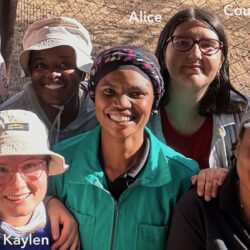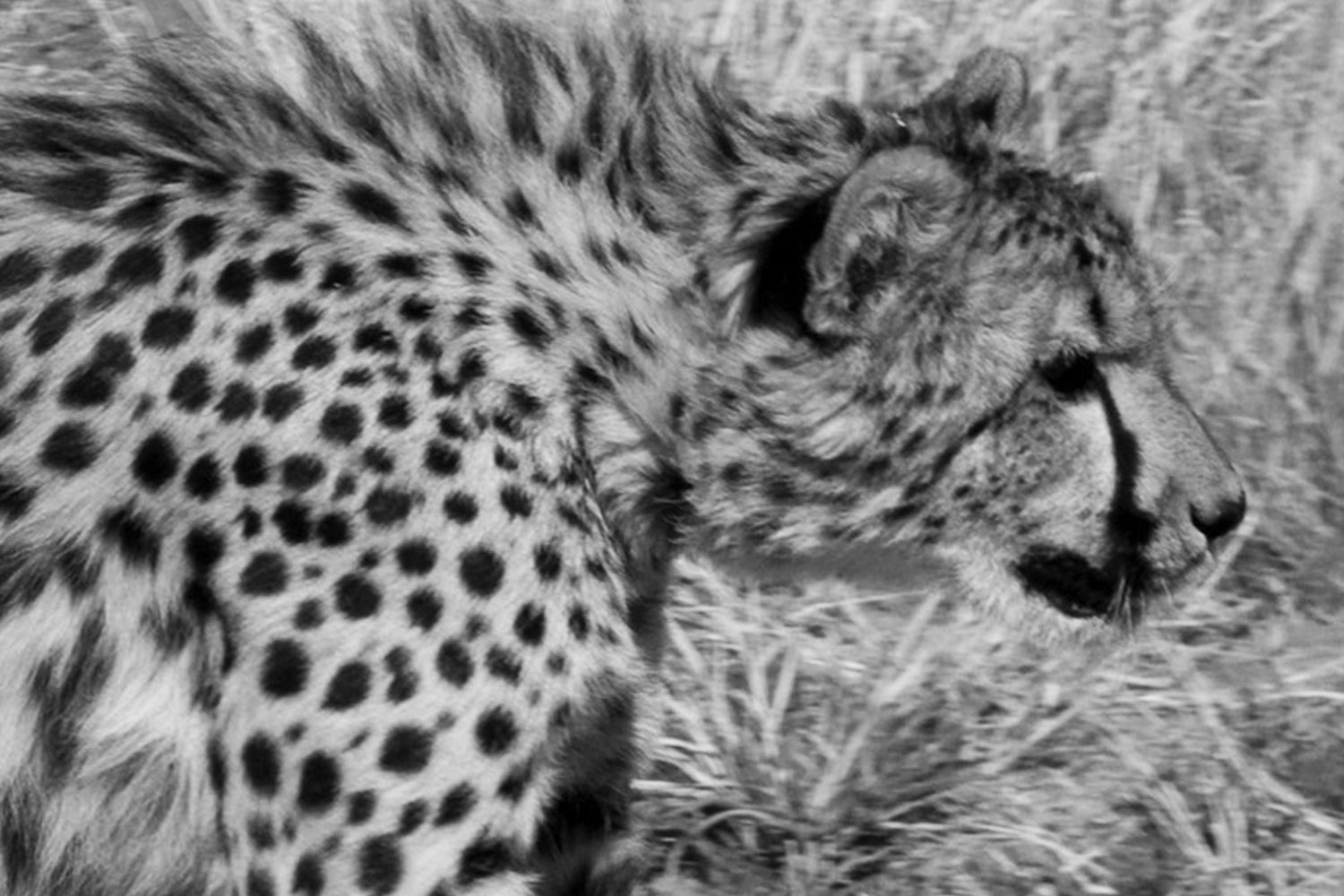An Experience We Will Never Forget!
-

- by Isabelle Bélisle and Leslie Harmidy May 17, 2023
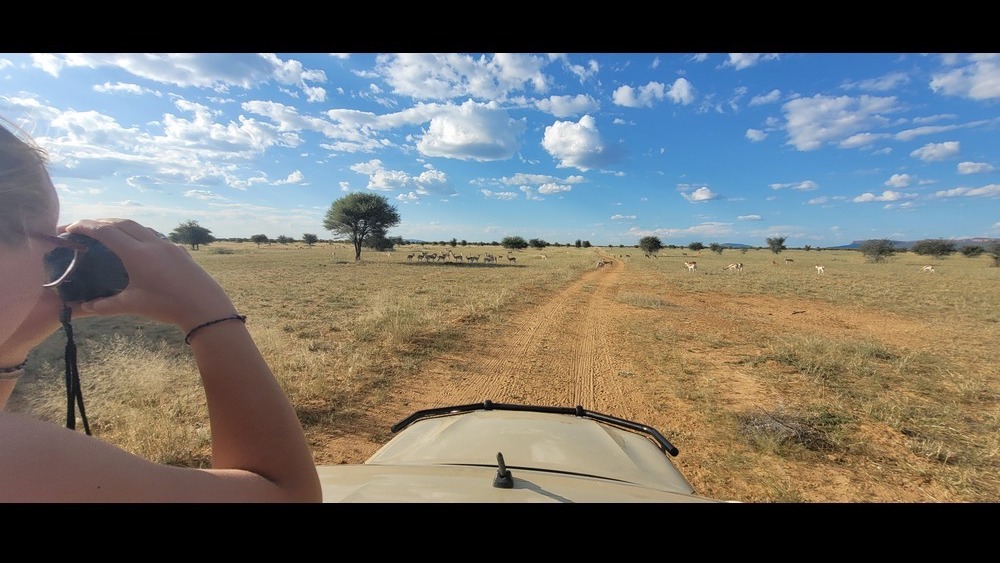
Interning at the Cheetah Conservation Fund Namibia (CCF) was an experience that we will never forget.
As students in Environmental and Wildlife Management (EWM) at Vanier College in Montréal, working on the ecology team was such an amazing opportunity to get to know the environment and experience field work at a professional level.
Vanier College gave us the chance to be a part of CCF’s ongoing, long-term biodiversity project. When we were not working with the ecology team, we were helping the cheetahs in other ways. We worked alongside the cheetah team, taking part in husbandry and enclosure maintenance; we worked with the livestock guarding dogs and goat herds, as well as brief work in the genetics laboratory and gardens.
The center has a variety of different departments doing various jobs to ensure the future of the cheetah species. If we were scheduled on the cheetah team, we would help feed the cheetahs, clean their enclosures, clean their water bowls, and prepare their meals for the next day. Watching the cheetahs run while we held onto a railing in the back of a pickup truck was one of the most exciting experiences at CCF.
Dogs with a Mission!
We also worked with the Anatolian Shepherd dogs who are so kind and sweet. They each have their own personality and funny quirks. Working in the dog department was always a joy. We would assist with cleaning their enclosures, changing their water, feeding, and walking the dogs.
There are two other working dogs living at CCF who are trained in scat detection. The two Belgian Malinois are trained to locate cheetahs and African wild dog scat. We were lucky enough to see these dogs in action during one of their training sessions. While the dogs were hard at work, we learned how to identify certain animal tracks. Any potential cheetah scat that is found is then brought back to CCF’s genetics laboratory. We were given a tour of the laboratory and were shown how the team extracts the DNA from the scat. Most of our time was spent in the cheetah, dog, or ecology departments but we were able to watch and help the veterinarians as they examined the goats and cared for the horses.
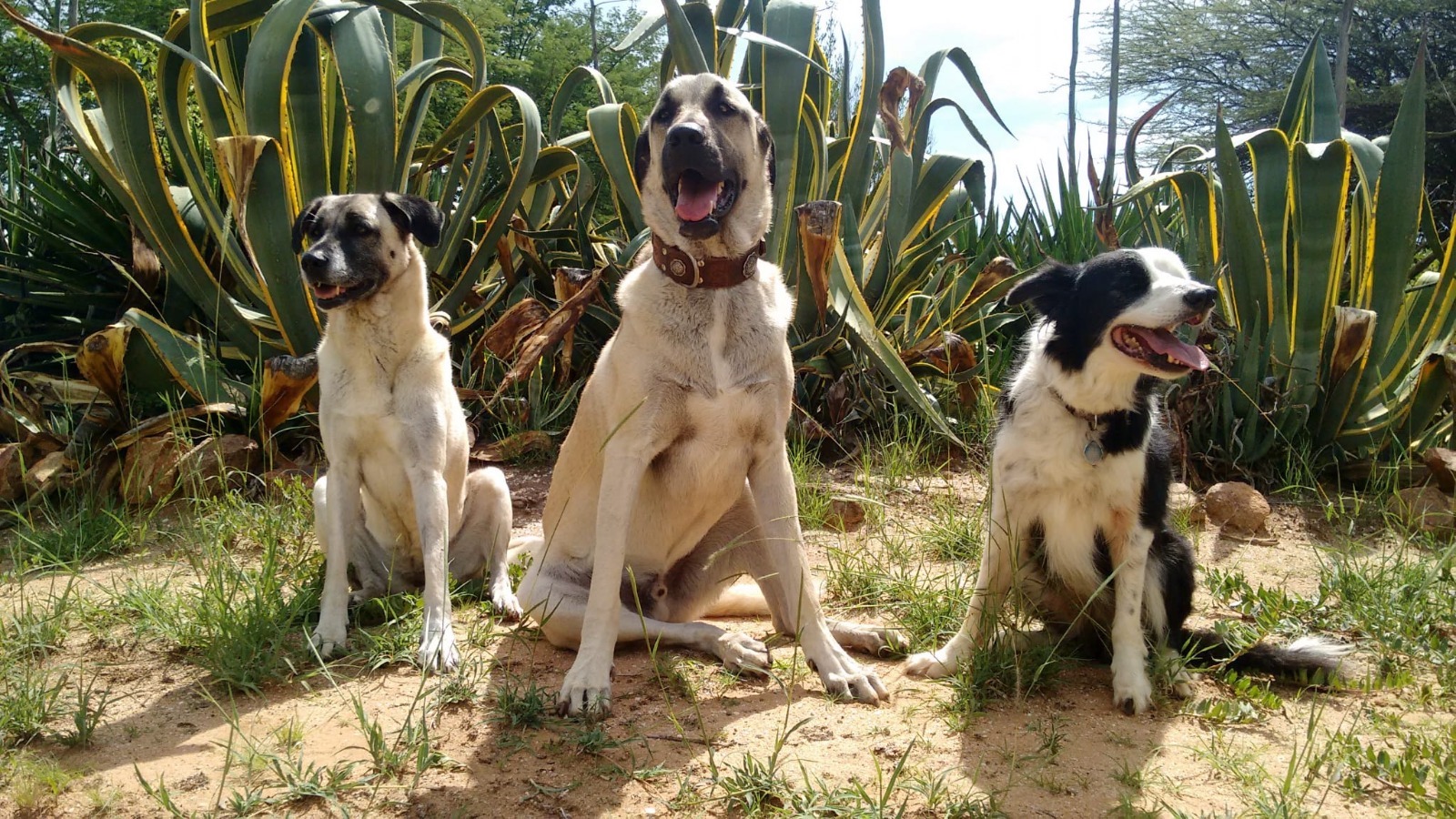
Biodiversity Project
The primary focus of our internship at CCF was the long-term biodiversity project. This project will be used to assess changes in biodiversity after bush removal over the course of several years. At six sampling locations, we identified bird species by sound and sight, used aerial nets to help identify flying insects, looked for reptiles, and set trail cameras to see which mammals were present. A second part of this project was started, using non-kill traps to collect ground and dung beetles. Data on the vegetation at these sampling plots will be conducted soon as well. This field work allows us to establish a baseline from which conclusions can be made about the effects of bush removal on all types of life.
After going out into the field, the ecology team worked in the office, where data was entered, and tough species identifications were discussed over field guides and online resources such as iNaturalist and Merlin. The office is also where images captured on our trail camera traps were sorted by species. Other projects also required the ecology team’s help in going through photos, and we became well-versed in mammal identification!
Game counts are done on a regular basis by the ecology team at CCF, where the team drives along a set path and notes all mammal and large bird species seen, along with their distance from the vehicle, their sex, and age when determinable. This is done to assess predator and prey populations within CCF land.
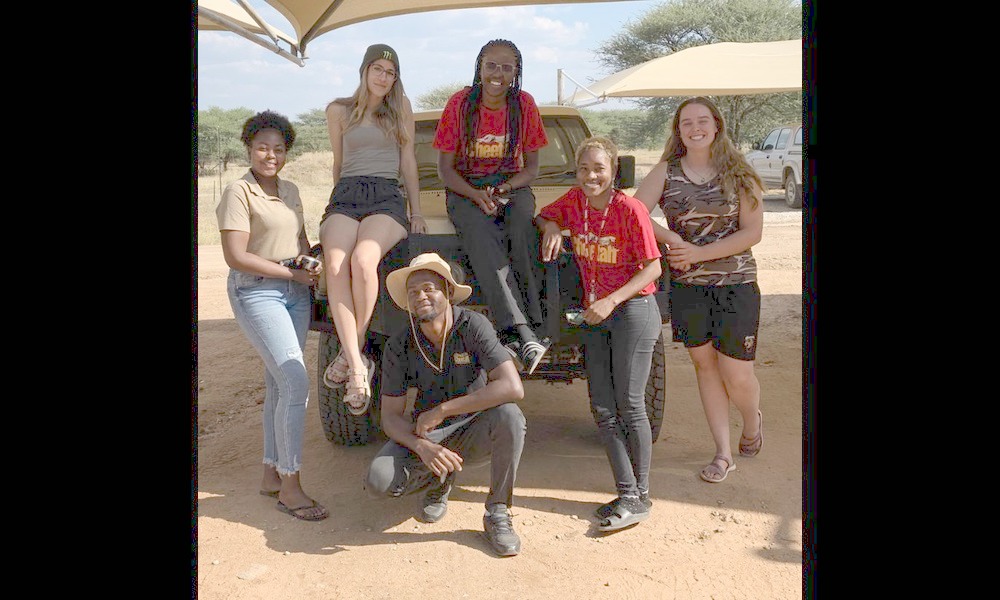
Our Favourite Things
Some of our favourite things about CCF were seeing amazing wildlife every day, getting to know the passionate people who are a part of CCF, and all the laughs. Having to conduct game drives was the highlight of our time working in the ecology department. We had the opportunity to not only work in CCF’s reserve, but we also had the chance to visit Etosha National Park and see remarkable animals that cannot be found on CCF’s property. After the workday was done, we spent our evenings playing volleyball with staff and other interns or taking walks with the dogs around the center.
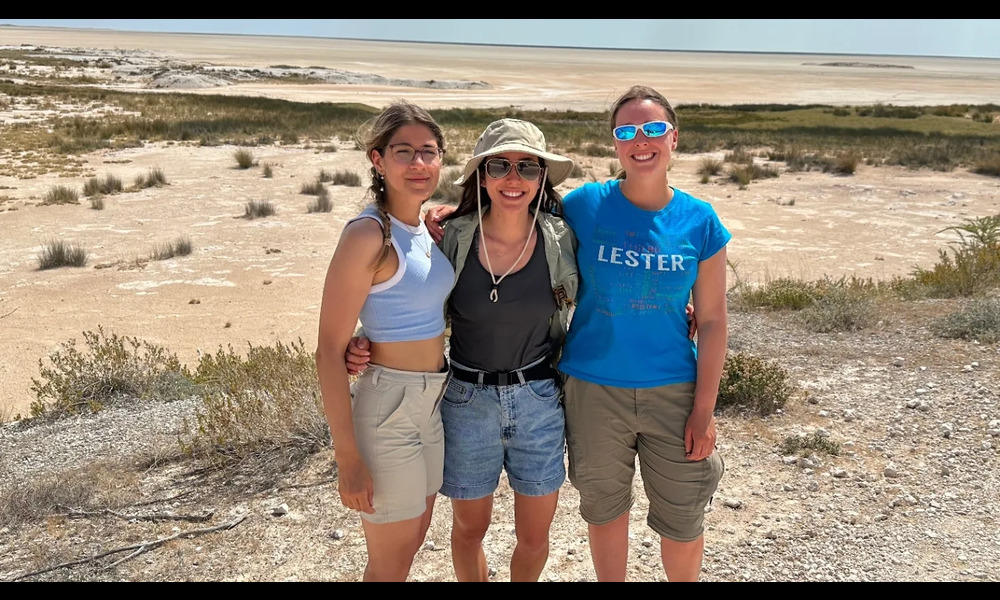
Key Take Aways
Interning at CCF taught us how to cooperate when working in the field, especially in new environments and with new people, letting us step out of our comfort zones. It taught us independence, in the way we trusted ourselves and our work. We learned and used technical skills to help conservation first-hand. Being able to apply the lessons of our past college semesters to a real project felt like a meaningful elevation of our academic knowledge.
The responsibilities that we were given both in our project and in other tasks at CCF are a step towards the responsibilities that come with advancement in our careers.
Cheetahs are at risk of extinction with only 7,500 individuals left in the world. They are at risk because their environment is changing as a cause of climate change. Native woody vegetation is rapidly expanding due to the increased atmospheric pollution. With increased carbon dioxide and nitrogen levels in the atmosphere many native plants are expanding into the open savanna. Cheetahs use these open areas to hunt and sustain themselves. With less open area and competition from other more successful carnivores, the cheetahs have begun hunting on farmlands. Cheetahs are often blamed by farmers for the death of their cattle since they are seen more frequently compared to a nocturnal predator. As a result, many farmers will kill the cheetahs they see on their farm to protect their cattle and livelihood. Canadians need to understand that farmers are not to blame, they are simply protecting their business. Someone at CCF told me “A cheetah to a farmer is like someone is taking money out of your bank account every month”. Both the cheetahs and the farmers are simply trying to survive, they do not mean to intentionally hurt one another.
As Canadians, we need to understand this complex situation and not blame the farmers or the cheetahs. Programs protecting livestock such as the Anatolian Shepherds need to be promoted. Their presence minimizes the conflict between the cheetahs and farmers. The Cheetah Conservation Fund is an incredible organization helping cheetahs worldwide. Canadians can help by bringing awareness to the cheetahs’ situation as they are an important predatory species.
Stay up-to-date...
with the activities of Cheetah Conservation Fund in Canada, Namibia and Somaliland. We send semi-annual newsletters and info about special events and initiatives. We do not share your email address with any other organization.
Related Reading
-
November 14, 2024
Let’s #SaveTheCheetah in the Wild Together! -
July 29, 2024
From Classroom to Savanna – Our Journey at CCF -
June 12, 2024
Our journey at CCF: Conservation and Collaboration


